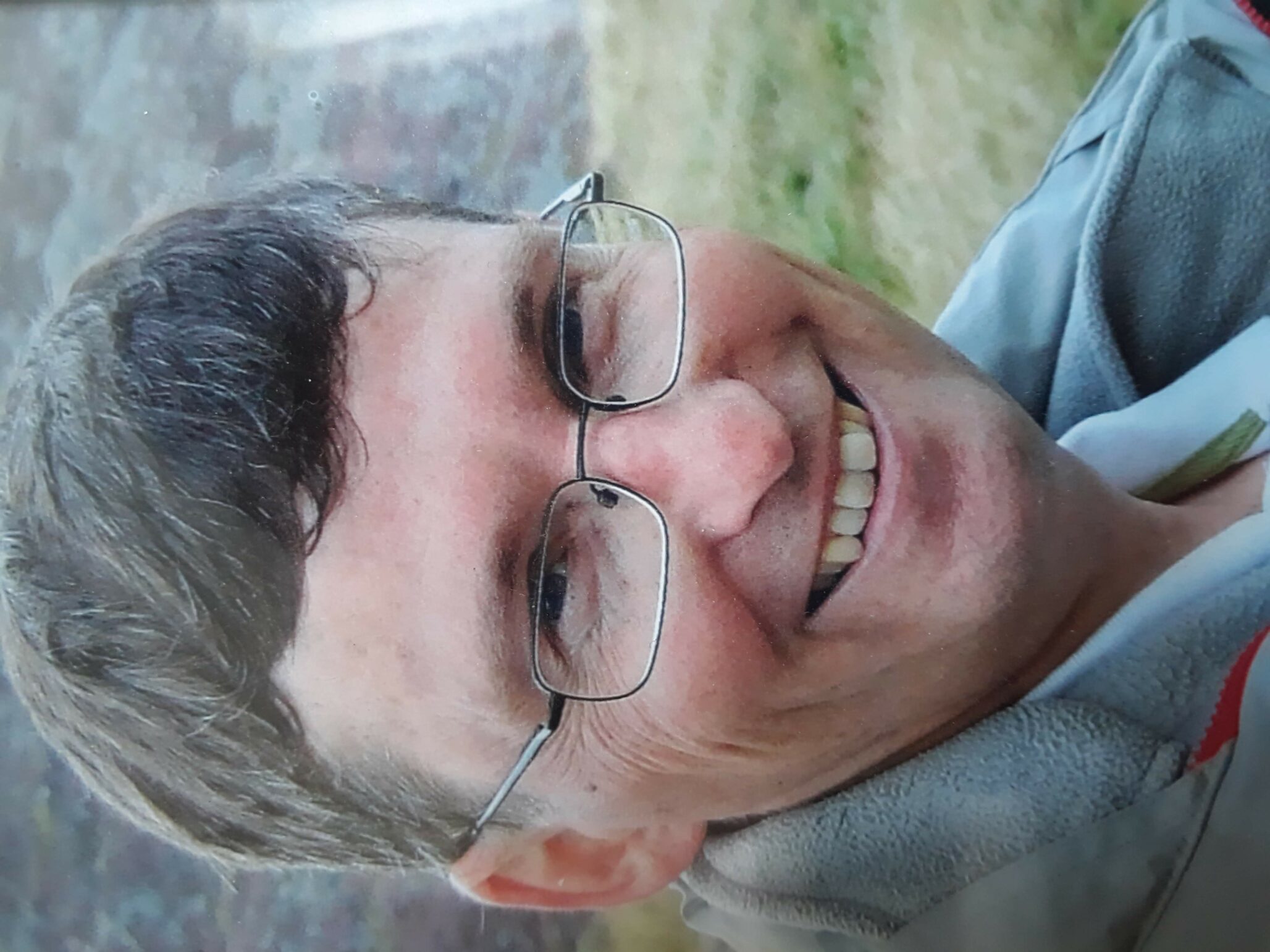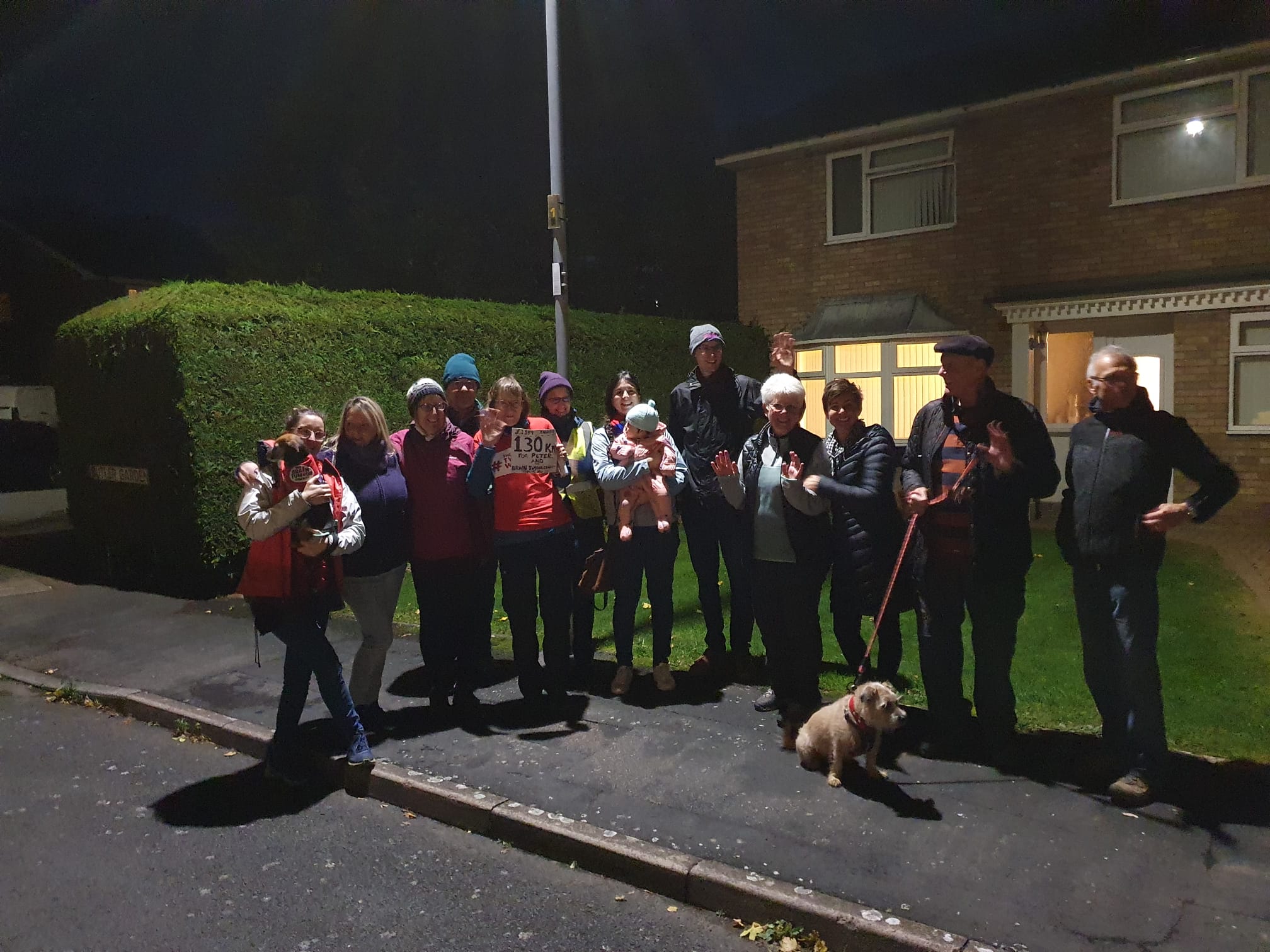One of our incredible fundraisers, Claire Watling, from Leicestershire, has supported us in many ways, notably with the Twilight Walk Own Walks she has organised in her local community, and a Big Bake. A former bilingual secretary, she met her husband Peter through mutual friends and they were married for nearly 40 years, before Peter lost his life to a brain tumour. Now 67, what Claire loves most of all is being with her grandchildren, an experience that sadly, due to his brain tumour, Peter was never able to enjoy.
Claire has made the incredible decision to leave a gift in her will to The Charity. Here we share her story, written in her own words.
Claire’s Story

Peter was a great dad, with a huge sense of fun. One Christmas he wrote a computer programme with an online advent calendar where our children had to solve a daily clue and enter it on the computer to open another clue which led to a treasure hunt location for a chest that he had buried in my uncle’s garden – which they got to dig up on Christmas Eve. He worked at Barclaycard for many years firstly as a Systems Analyst and then leading a team as a Solutions Architect. He was very much respected at work, as was proved by the number of people who attended his funeral. He was described as the “go to” person for anyone with technical problems. He was a very clever man, which made the diagnosis of a brain tumour so devastating for him and us. He hated the fact that his brain wasn’t working. It was so frustrating for him.
In his spare time he loved to build and fly model aeroplanes. Another love was real ale! Once the children had grown up we used to go on long walks, always ending up in a pub. Peter was very unselfish. So much so that he didn’t tell me that he was having problems as he thought he had developed early onset dementia and we had just lost my mum to dementia. I cared for both my parents as they grew old and he knew the toll it took. He never complained when I spent hours looking after my parents as he thought we had many years to come to spend together, which sadly turned out not to be the case. We had plans to travel and cross the USA.
Glioblastoma diagnosis
We had just spent a week in Yorkshire on holiday when, at home a couple of days later, I couldn’t wake him up one morning. We were given the diagnosis of a possible glioblastoma in A & E. The only thing I had noticed before this was that Peter was frequently tired and from time to time he would say something that sounded completely out of character. Peter went through chemotherapy and radiotherapy. He grew almost unrecognisable after losing his hair and putting on several stones in weight from the steroids he had to take. He refused to look at himself in the mirror as he hated his reflection so much. It was absolutely awful for him and us to see him change from the bright, clever person he was to being a “useless blob” – his words, not mine. The position of Peter’s tumour meant that he lost his short term memory so couldn’t remember that his diagnosis was terminal. We did remember, of course, which was hard. We looked after him at home with the help of the district nursing team. He died seven months after his diagnosis, having started some gruelling treatment, peacefully at home surrounded by family and friends.
As I write this, the tears are falling down my face. It hits you so hard sometimes. I lost my soulmate, my children were robbed of years with their dad and we all miss him more than we can possibly express.
I contacted the Brain Tumour Charity not long after Peter’s diagnosis. My questions were answered with clarity, compassion and support. I could ask anything and not be judged. To speak to someone who knew what the diagnosis entailed was so important. I received regular phone calls of support. I needed someone other than family to talk to. The information pack they sent was so helpful. As Peter’s treatment continued, I was able to get in touch anytime. The Brain Tumour Charity is a vital support to both the patient and family. Their work in research is also vital to try and find treatment or cures for this dreadful disease which has limited funding from the government. The money raised by them funds so much research in their centres of excellence. The charity’s commitment to trying to end this disease is unending. I will be eternally grateful for the support given to me at the worst time of my life.


Making a difference with a gift in her will

For this reason, I am going to leave a gift in my will so that their work can continue to help other families who find themselves in the same situation as us. It’s very important to me to know that the charity will be there in the future to bring much needed support and to carry on the research so that more brain tumours can be treated and cured.
I really hope that sometime in the future, the diagnosis of a glioblastoma brain tumour in particular will not be the death sentence that it is now. I don’t want families to have to go through what we did, along with so many other families. We rely on the charity to do this work for us. Brain tumours will only be defeated if more money is raised or provided for the vital research for a cure. The charity raises awareness through its fundraising and campaigning for more input by the Government. It is vital that there is more awareness of this disease. In the meantime we will continue trying to raise funds for the charity.
